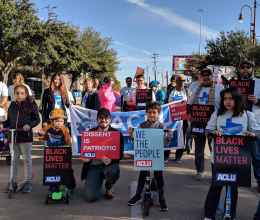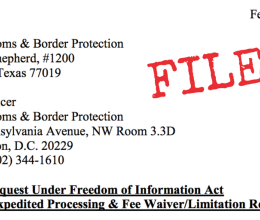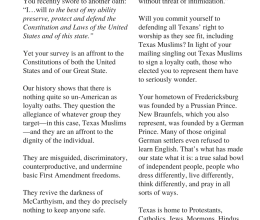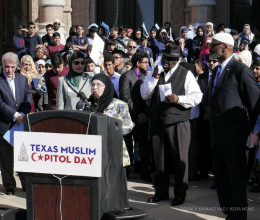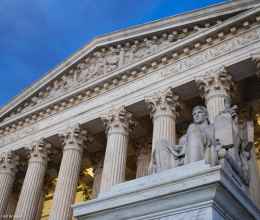
"There is no question that Amardeep Singh's rights have been violated," said Lisa Graybill, Legal Director of the ACLU of Texas. "Judge Cercone not only denied Mr. Singh his basic rights to religious practice while defending himself in court, he caused him deep humiliation as well. For Singh, the turban signifies devotion to God, and is an integral part of a Sikh's identity, just as a yarmulke is for Jewish men or a hijab is for Muslim women."
Singh appeared in Judge Cercone's court on June 23, 2006 because of a traffic citation. When he arrived, he was told by a court employee that he was in violation of the court's "no hats" policy and that he must remove his "hat." Although Singh tried to explain to Judge Cercone that his turban was not an accessory but instead an important part of his faith, Judge Cercone said that if Singh did not leave the courtroom and stayed with his "hat" on, he would be arrested. After consulting with his uncle, a Sikh priest, Singh removed his turban.
"I could not believe that here in the United States, a judge whose job it is to uphold the law would show such disrespect for my religion," said Singh. "As a devout Sikh, my hair, beard, and turban have deep religious meaning to me. I treat this article of faith with utmost respect and pride. A turban is not an optional clothing item to put on and remove at will. Ordering me to remove my turban was extremely humiliating for me."
Singh contacted Rajbir Singh Datta, Associate Director of the Sikh American Legal Defense and Education Fund (SALDEF) in Washington, D.C., who tried to resolve the matter with Judge Cercone before referring Singh to the ACLU of Texas. "I am surprised and disappointed that it came to this," said Datta. "SALDEF has successfully resolved similar incidents in other states without having to resort to litigation. For example, a judge in Georgia who made a similar demand issued an apology after we interceded, and changed the court's policy to ensure that the critical American principles of religious freedom and expression would be respected in the future."
The case is being brought under the Texas Religious Freedom Restoration Act (RFRA), which prohibits government authorities from burdening an individual's right to free expression of his or her religion. "This case presents an issue of first impression under the Texas RFRA," said Jerry Murad, Jr., a volunteer attorney with the ACLU of Texas who is representing Singh in this matter. "We believe RFRA's prohibition on substantially burdening a person's free exercise of religion clearly applies to the judge in this case."

For more information on SALDEF, the Sikh faith, and the importance of the turban to Sikhs, click here.
For more information about Sikhs in the Dallas area, please click on the United Sikhs website at www.unitedsikhs.org.
For more information on the ACLU's work to protect religious freedom throughout the United States, click here.

